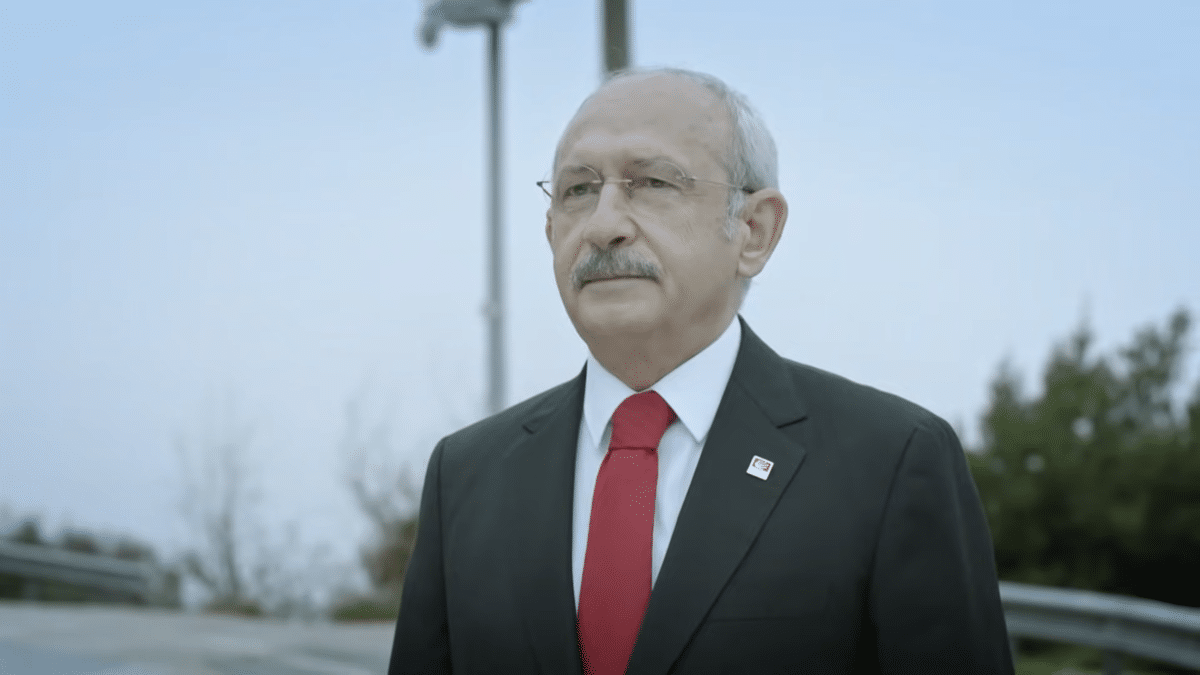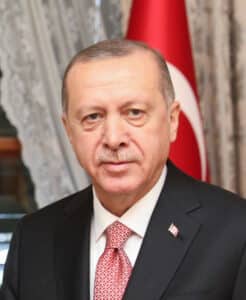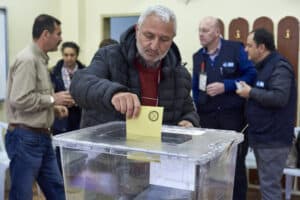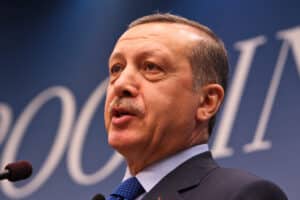Kemal Kılıçdaroğlu, 2019: CHP
Recent opinion polls in Türkiye point to a neck-and-neck race and even possible power change in the coming up elections. Turkish voters will cast their votes on 14 May to decide on their next president and the members of the parliament.
According to the latest opinion polls conducted by 11 different companies, Justice and Development Party (AKP) is leading the race with over 32% of the votes, followed by the Republican People’s Party (CHP) projected to win around 27.6%. The pro-Kurdish Peoples’ Democratic Party (HDP) is on the third place with 10.7%. Despite running for the first place and having four parties backing, the ruling AKP is losing ground against the opposition. Looking at the overall votes of the two opposing blocs, the National Alliance is leading the polls with 42.2% while Erdogan’s People’s Alliance set to gain 40.6% of the votes.
Splitting of opposition vote
Currently, four names have reached 100,000 signatures required for nomination as a presidential candidate, although there is no doubt that the race is Erdoğan against Kılıçdaroğlu. Based on the latest announcement by research company MetroPoll, Kılıçdaroğlu is ahead of Erdoğan by 2.5 percentage points. At the beginning of March, the gap between the rivals was around 5 to 10%. The two minor candidates are Muharrem Ince of the centre-left Homeland Party, which split from the CHP in 2020, and the far-right Sinan Ogan. The latest polling suggests that the two main candidates will go head to head in the first round. Kılıçdaroğlu is polling at around 47%, while Erdoğan is scoring around 43%. İnce is polling at about 7% and Oğan at 2%. At least 50% is needed to be elected president in the first round. If no candidate reaches this quorum, a run-off takes place. Because İnce splits the left-of-centre opposition vote, he could deny Kılıçdaroğlu a victory in the first round.
The National Alliance has faced public criticism from his main coalition partner, the nationalist Iyi Parti, that he muscled his way to the candidacy, forcing others out of the running despite polls showing that every other potential option stood a better chance of beating Erdoğan. The right-wing IYI Party withdrew from the main opposition alliance last month, rejecting its proposal to make the biggest opposition party leader their election candidate. IYI Party leader Meral Aksener said the other five parties in the alliance had put forward Kemal Kılıçdaroğlu leader of the Republican People’s Party (CHP), as their presidential candidate. She said her party, the second biggest in the alliance, would not bow down to pressure to accept him. She proposed as candidates the Istanbul and Ankara mayors instead, both from the CHP, saying opinion polls showed they would win by a large margin against Erdoğan.
Big plans
The National Alliance wants to roll back measures implemented by Erdoğan and his allies that it said have brought the country towards “one-man rule”. The promised reforms include limiting the president to a seven-year term while making an empowered new prime minister accountable to legislators. They will terminate the President’s veto power of Parliament and strengthen the freedoms of thought, opinion and expression. While many polls indicate the opposition coalition could gain a majority in the parliament, the race for the presidency remains tight. Without winning both the presidency and the parliament, the opposition will be unable to enact the sweeping constitutional reforms they have promised. The risk that Erdoğan could hang on as president even if his party suffers a defeat in parliament could further concentrate power around the presidency, cancelling out any opposition gains.
Author: Manouk Bronzwaer



